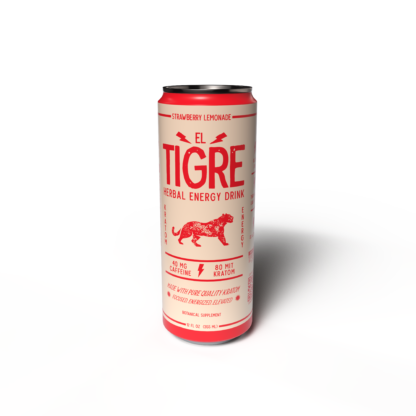Kratom’s Potential Role in Hair Growth
Kratom, a tropical plant native to Southeast Asia, has gained popularity in recent years for its purported energizing and mood-boosting effects. While commonly known for its potential impact on energy levels and pain management, emerging research suggests that kratom may also hold promise for promoting hair growth.
Stimulation of Hair Follicles

Kratom contains compounds believed to stimulate hair follicle activity. These compounds may promote increased blood flow to the scalp, nourishing hair follicles and encouraging growth. Some proponents of kratom’s hair-growth benefits suggest it can help address issues like androgenetic alopecia (male or female pattern baldness). However, further research is needed to fully understand kratom’s mechanisms of action and its efficacy in promoting hair growth.
It’s important to note that the use of kratom for hair growth is still largely anecdotal. More clinical studies are necessary to confirm its effectiveness and establish safe dosages. As with any new supplement or treatment, consulting with a healthcare professional is essential before incorporating kratom into your hair care routine.
Increased Blood Flow to Scalp
Kratom contains compounds that are thought to stimulate the activity of hair follicles. These compounds may also increase blood flow to the scalp, delivering more nutrients to the follicles and encouraging hair growth. Some believe kratom can be helpful in addressing conditions like androgenetic alopecia (male or female pattern baldness).
While there is some anecdotal evidence suggesting kratom’s potential benefits for hair growth, more research is needed to confirm its effectiveness and determine safe dosages.
Nutritional Benefits for Hair Health

A healthy diet plays a crucial role in promoting strong, lustrous hair. Certain nutrients are essential for optimal hair growth, including proteins, vitamins (like biotin, vitamin D, and iron), and minerals (such as zinc).
Rich in Vitamins and Minerals
A healthy diet plays a crucial role in promoting strong, lustrous hair. Certain nutrients are essential for optimal hair growth, including proteins, vitamins (like biotin, vitamin D, and iron), and minerals (such as zinc).
- Proteins provide the building blocks for hair structure.
- Biotin supports keratin production, a key protein in hair.
- Vitamin D may play a role in hair follicle cycling.
- Iron is essential for carrying oxygen to hair follicles.
- Zinc contributes to scalp health and hair growth.

Biotin and Vitamin C
A healthy diet plays a crucial role in promoting strong, lustrous hair. Certain nutrients are essential for optimal hair growth, including proteins, vitamins (like biotin, vitamin D, and iron), and minerals (such as zinc).
Proteins provide the building blocks for hair structure. Biotin supports keratin production, a key protein in hair. Vitamin D may play a role in hair follicle cycling. Iron is essential for carrying oxygen to hair follicles. Zinc contributes to scalp health and hair growth.
Iron and Magnesium
A healthy diet plays a crucial role in promoting strong, lustrous hair. Certain nutrients are essential for optimal hair growth, including proteins, vitamins (like biotin, vitamin D, and iron), and minerals (such as zinc).
Proteins provide the building blocks for hair structure. Biotin supports keratin production, a key protein in hair. Vitamin D may play a role in hair follicle cycling. Iron is essential for carrying oxygen to hair follicles. Zinc contributes to scalp health and hair growth.
Iron plays a vital role in hair health by transporting oxygen to hair follicles, which are necessary for cell growth and function. Iron deficiency can lead to hair loss as the follicles aren’t receiving enough oxygen to produce new hair.
Magnesium is another important mineral for hair health. It helps to regulate oil production on the scalp and contributes to protein synthesis, which is essential for strong and healthy hair.
Possible Side Effects and Precautions
Like any substance that interacts with the body, kratom can have potential side effects. These may include nausea, dizziness, insomnia, and digestive issues. It’s crucial to be aware of these potential effects and proceed with caution, especially if you have pre-existing health conditions or are taking medications.
Allergic Reactions
Kratom can cause side effects such as nausea, dizziness, insomnia, and digestive issues.
Individuals with pre-existing health conditions or who take medications should exercise caution when considering kratom use and consult a healthcare professional.
Allergic reactions to kratom are possible, although they are less common than other side effects. Symptoms of an allergic reaction may include itching, hives, swelling, and difficulty breathing.
If you experience any signs of an allergic reaction, discontinue use immediately and seek medical attention.
Interactions with Medications
Like any substance that interacts with the body, kratom can have potential side effects. These may include nausea, dizziness, insomnia, and digestive issues. It’s crucial to be aware of these potential effects and proceed with caution, especially if you have pre-existing health conditions or are taking medications.
Kratom can cause side effects such as nausea, dizziness, insomnia, and digestive issues.
Individuals with pre-existing health conditions or who take medications should exercise caution when considering kratom use and consult a healthcare professional.
Allergic reactions to kratom are possible, although they are less common than other side effects. Symptoms of an allergic reaction may include itching, hives, swelling, and difficulty breathing.
If you experience any signs of an allergic reaction, discontinue use immediately and seek medical attention.
Fast-acting Kratom energy shots for sale
Lottie London Aesthetics
Noemi Klein
- Xela Rederm Skin Booster Treatments Near Petersham, Surrey - January 14, 2026
- Xela Rederm Skin Booster Treatments Near Chertsey, Surrey - January 11, 2026
- Why The Vista Edge Series Vape Is Gaining Popularity In The UK - January 8, 2026
